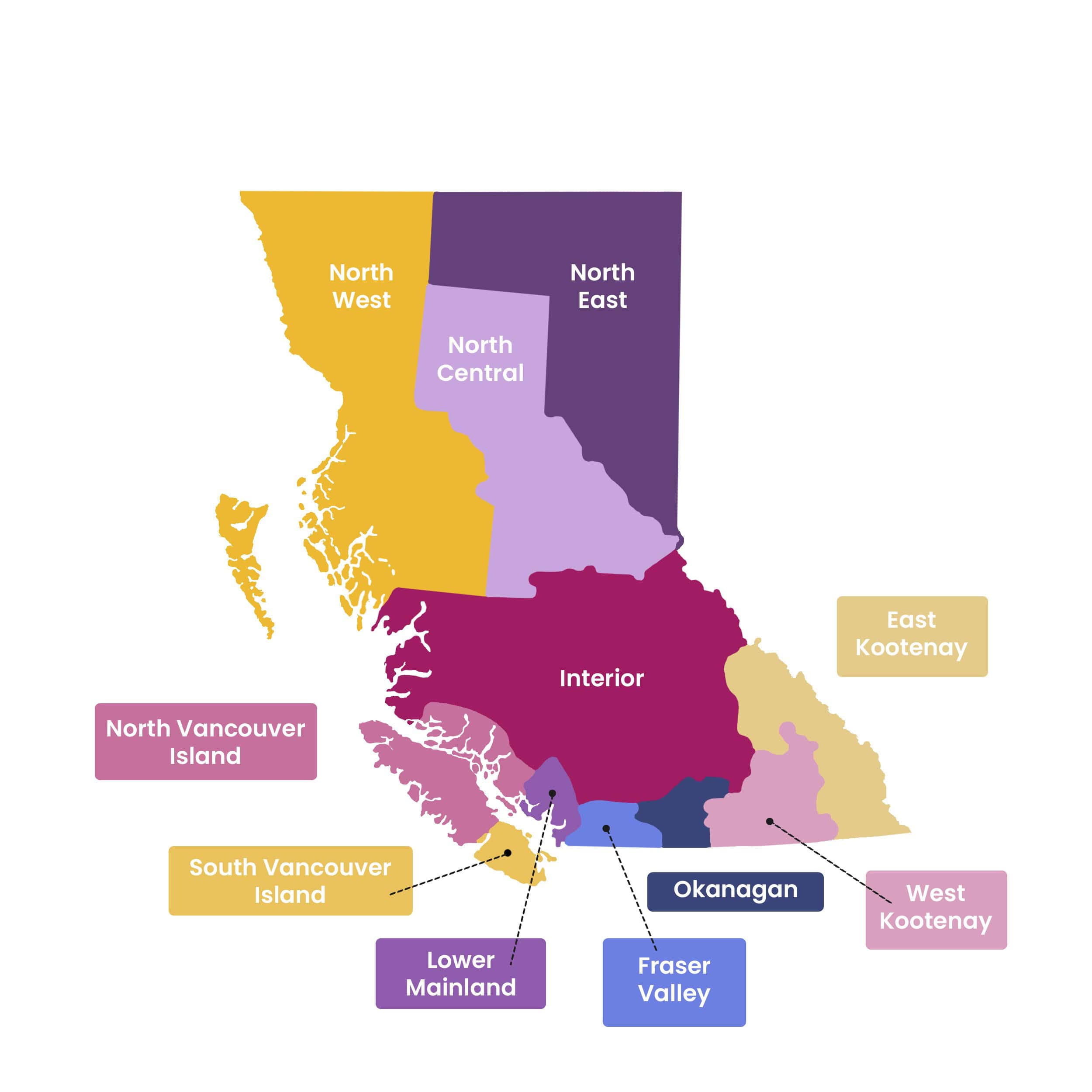Survivor Financial, Accommodation and Transportation Resources
It is important to discuss the potential costs of accessing healthcare services with the survivor, especially if they do not have private, provincial, or federal health insurance. Some specialized sexual assault programs do not charge survivors for service.
Ambulance service fees are not an insured benefit under the BC Medical Services Plan (MSP) or the Canada Health Act. Ambulance fees are heavily subsidized for persons with a valid BC Care Card who are covered by MSP (BCEHS, 2020). For more information about Ambulance Fees click here.
Survivors that are registered with First Nations Health Benefits and Services (FNHBS) are eligible for Medical Transportation (MT) benefits. The MT benefit supplements the cost of travel expenses to access medically necessary health services not available in your community of residence (First Nations Health Authority, 2023). For more information click here.
The Travel Assistance Program (TAP) helps cover some transportation costs (i.e., flight, ferry, bus, train) for eligible B.C. residents enrolled in the Medical Services Plan who must travel within the province for non-emergency medical specialist services not available in their own community (Government of BC, n.d.). Click here for more information.
Click the links below for information on accommodation and transportation resources for survivors.
Discounted hotel accommodations are available for patients requiring out-of-town medical services and their family members.
Contact procurement@gov.bc.ca or call 250 387-7300 for assistance.
Click here for more information.
Health Connections is regional travel assistance program that offers subsidized transportation options to help cover costs for rural residents who must travel to obtain non-emergency, physician-referred, medical care outside their home communities. Please refer to region-specific information below.
- Interior Health has compiled information on transportation options and resources here.
- Northern Health Connections (NHC) medical bus service is a health transportation service that supports people to access medical and health services not available in or near their home communities or location. Click here for more information.
- Wheels for Wellness Society provides transportation for residents of Vancouver Island to and from non-emergency medical appointments. Click here for more information.
Accessible Transportation Options
HandyDART is a shared ride service for passengers with physical or cognitive disabilities who are unable to use public transit without assistance. It is available in Metro Vancouver and some rural communities including Powell River, Squamish, and the Sunshine Coast (Vancouver Coastal Health, n.d.). Click here for more information.
Bella Coola Valley Bus Company operates as a dial-a-ride transit service for persons with disabilities.
Northern Health Connections buses are all accessible for wheelchairs smaller than 31” wide and 48” long and have the following:
- Wheelchair-accessible washrooms for all coaches and some minibuses
- Wheelchair lifts and tie-downs
- Seats that can be moved and adjusted to accommodate patient’s conditions (Northern Health Connections, n.d.)

